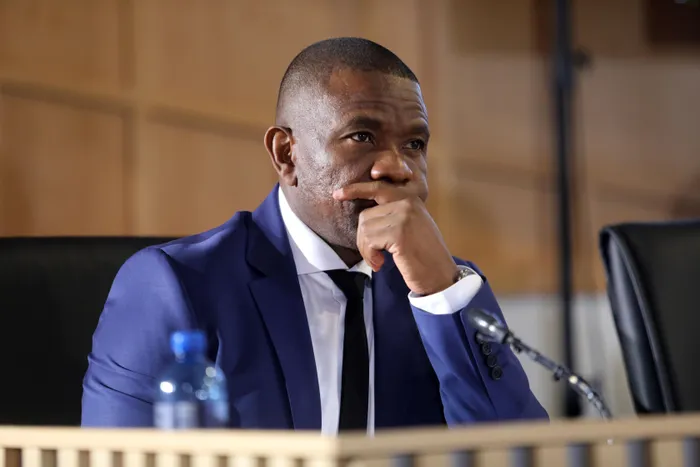Madlanga Commission hears explosive testimony on drug cartels and police interference

KZN Police Commissioner, Lt-Gen. Nhlanhla Mkhwanazi revealed that the arrest of Crime Intelligence chief Dumisani Khumalo was part of the efforts to stop investigations.
Image: Oupa Mokoena / Independent Newspapers
KZN Police Commissioner Lieutenant General Nhlanhla Mkhwanazi made significant allegations at the Madlanga Commission on Thursday, claiming that the arrest of Crime Intelligence chief Lieutenant General Dumisani Khumalo was a deliberate action aimed at obstructing investigations into major drug cartels and organised crime.
Speaking at the Madlanga Commission on Thursday, Mkhwanazi revealed that internal sabotage and political interference were crippling the Political Task Team’s work, which was tasked with unearthing deep-rooted criminal networks operating across provinces.
“When General Khumalo was arrested, it became clear – this wasn’t just a legal matter. It was a strategic hit on our operations. His arrest was meant to immediately collapse the investigation,” said Mkhwanazi.
Khumalo was arrested two months ago under what Mkhwanazi called "questionable and politically motivated circumstances," following a letter circulated within the Investigating Directorate Against Corruption (IDAC).
The commissioner said the letter, which sparked Khumalo’s arrest, was never formally requested but obtained through whistleblowers within IDAC.
“The Chief of Staff and the Minister cannot deny the letter exists — it has a signature. It was used to call for the docket and initiate the arrest,” he told the commission.
Mkhwanazi claimed that IDAC was internally divided, with one faction operating lawfully while another functions as a weaponised unit used to disrupt law enforcement efforts.
“There are two structures within IDAC,” he said. “One pursues justice. The other? It’s malicious – a tool to sabotage the criminal justice system.”
According to Mkhwanazi, the project to expose drug cartels was gaining momentum until Khumalo’s arrest forced it to a sudden halt.
“We began to connect the dots when our intelligence operations in Gauteng were being disrupted. Then came Khumalo’s arrest, and everything stopped. That was the goal,” he said.
Mkhwanazi’s explosive testimony painted a troubling picture of internal warfare within South Africa’s law enforcement agencies with organised crime investigations caught in the crossfire.
The Madlanga Commission continues its inquiry into the politicisation of the police and the influence of criminal syndicates in state institutions.
Get your news on the go, click here to join the Cape Argus News WhatsApp channel.
Cape Argus